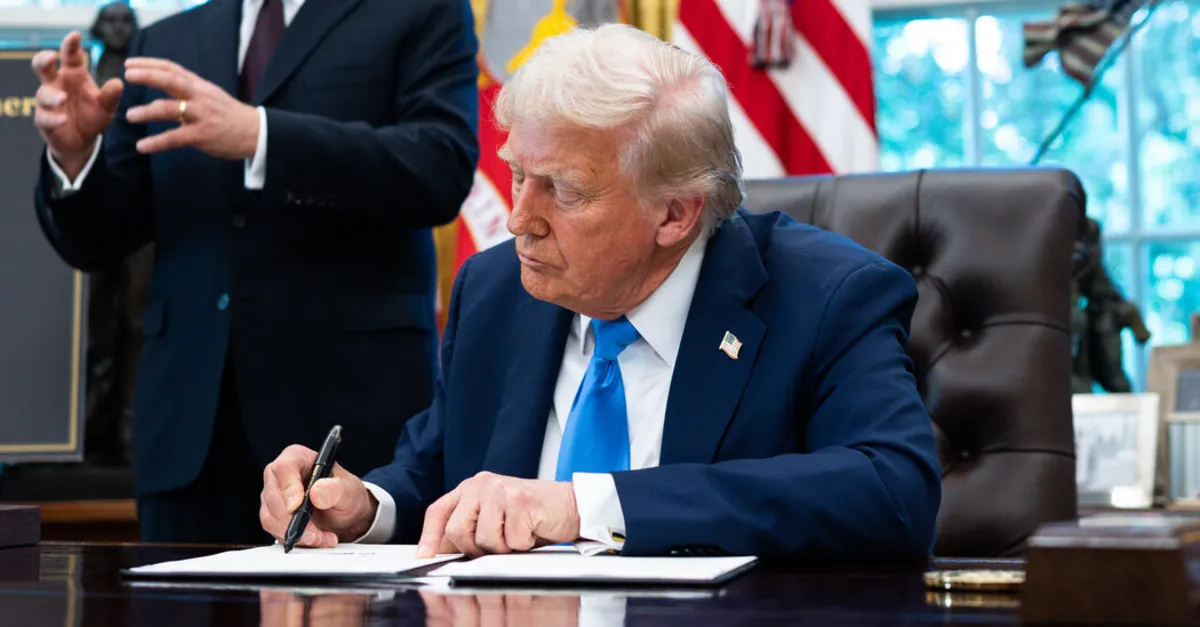
On Friday, President Donald Trump announced significant reforms to the way the United States manages H-1B visas, which are essential for skilled foreign workers. The federal government plans to impose a substantial annual fee of $100,000 for these visas, marking a drastic change in immigration policy. This initiative aims to regulate the influx of foreign talent while ensuring that American workers are prioritized.
In addition to the new fee structure, President Trump also signed an executive order establishing an expedited visa program dubbed the “gold card.” This initiative, which was initially hinted at in February, will require a fee of $1 million for individual applicants, and $2 million if a corporation is sponsoring the application. According to White House officials, these measures are part of a broader crackdown on immigration.
The introduction of the $100,000 annual fee for H-1B visas is expected to face significant legal challenges. If upheld, companies that employ skilled international workers will be required to pay this fee for each employee on an H-1B visa, applicable for a maximum of six years. Importantly, this fee will only affect new applicants, as clarified by a White House official.
During the signing ceremony in the Oval Office, Commerce Secretary Howard Lutnick emphasized the goal of these changes: “Either the person is very valuable to the company and America, or they’re going to depart, and the company is going to hire an American.” He further asserted that the essence of immigration should center around hiring Americans and ensuring that incoming talent is of the highest caliber.
President Trump characterized the “gold card” initiative as a method for the government to generate billions in revenue. Lutnick indicated that this program could potentially replace all existing green card visa programs. “You can prove exceptional value to the United States of America by contributing a million dollars,” he explained during a press call following the proclamation.
Many sectors, including technology, finance, healthcare, and education, rely heavily on H-1B visas to recruit top talent. The newly introduced fee could significantly hinder their ability to fill critical positions, thereby reshaping the workforce landscape in the United States. Notably, as of late June, Amazon employed over 10,000 H-1B visa workers, leading all companies in this regard. Other major beneficiaries included tech giants like Microsoft, Meta, Apple, Google, JPMorgan Chase, Walmart, and Deloitte.
Administration officials have downplayed concerns regarding the $100,000 fee, asserting that it would ultimately bolster American workers’ wages by discouraging companies from using visas to import lower-wage international talent. They argue that this cost will also limit the number of applicants, providing companies with more stability compared to the previous lottery system. Historically, the lottery has allowed for 85,000 new visas to be issued annually for high-skilled foreign workers, a process that also involved vetting fees.
Critics of the new policy are already voicing their concerns. Doug Rand, a former senior official at U.S. Citizenship and Immigration Services under President Biden, expressed doubts about the legality of tying a hefty fee to visa issuance, suggesting it would not withstand judicial scrutiny. Similarly, Tom Jawetz, a former senior attorney at the Department of Homeland Security, condemned the new policy, likening it to extortion. “This is how the mob operates when it demands protection money,” he stated.
The introduction of the new fee addresses ongoing debates among some conservatives who argue that the foreign visa worker program has negatively impacted the U.S. job market by enabling companies to hire foreign talent at lower wages, displacing American workers. Conversely, business leaders, particularly in the technology sector, argue that the visa program is crucial for maintaining competitiveness. President Trump’s recent actions suggest he is leaning towards those advocating for stricter visa regulations.
As the Trump administration implements these changes, it signals a clear shift in immigration policy, prioritizing American workers while attempting to regulate the flow of foreign talent. The administration believes that businesses will appreciate the clarity and predictability that the new fee structure and expedited visa process provide. Ultimately, the long-term effects of these measures on the U.S. economy and workforce remain to be seen.